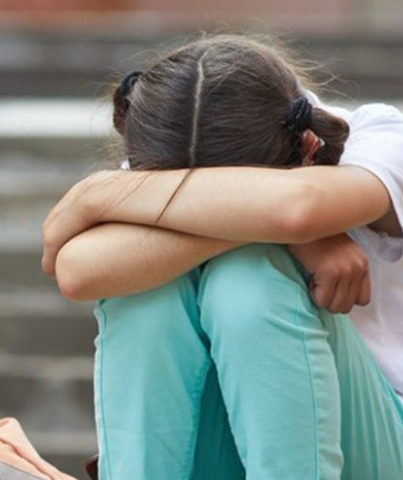
“Even in Death, I Owe Him Nothing”: Woman Refuses to Forgive Her Secondary School Bully Despite His Passing

The internet was thrown into a storm of emotion and debate when a Nigerian woman took to social media to reveal why she refused to offer condolences or feel any remorse after the death of her secondary school bully. The tweet, which quickly went viral, was as bold as it was chilling. Moróunmúbò Àjoké, tweeting under the handle @DeeJumai, shared a disturbing childhood memory that left many readers stunned, while others nodded in silent understanding.
“In secondary school, a bully drank my Lacasera, peed in the bottle, and left it in my lunch pack,” she wrote. “I almost drank it, only stopped 'cause the cap opened too easily. He died 2 years ago, and classmates were shocked I had no condolences. Lol.” The tweet was more than a simple recollection. It was a statement. One that sparked a wide conversation about the long-lasting trauma that school bullying leaves behind, and the social expectations around forgiveness, especially when the perpetrator is no longer alive to answer for their actions.
Àjoké’s story didn’t end with that one grotesque incident. She went on to explain that he also ate the rest of her food that same day, leaving her with nothing to eat until her mother came to pick her up late in the evening. A rare gesture of care from her mother—packing them lunch because she knew it would be a long day—was brutally sabotaged. That moment, etched in her memory, became just one of many in a collection of harrowing experiences inflicted by someone who, even in death, had left a scar too deep to ignore.
Her decision not to extend forgiveness wasn’t born out of bitterness, she emphasized, but from a place of honesty. “I can't perform forgiveness just because the person is dead,” she tweeted. “I will hold this grudge till we both face God.” It was a raw, unapologetic statement. And for many who had experienced bullying, it resonated powerfully.
The internet’s reaction was immediate and divided. Some users accused her of harboring unnecessary hatred. Others questioned her morality, asking why she would hold on to something after the person was no longer alive to suffer consequences. But a surprisingly large portion of the replies and quote tweets expressed solidarity.
“People don’t understand that bullying is not just teasing,” one commenter replied. “It’s systematic destruction of someone’s self-worth. Some of us are still recovering, years later.”
“Forgiveness is not an obligation. Especially not when the pain still walks with you,” another wrote.
Bullying in Nigerian schools, especially boarding schools, is often downplayed, dismissed, or romanticized as "toughening up." But for those who lived through it, there was nothing romantic or strengthening about it. For them, it was survival. And the perpetrators? They were not mischievous classmates—they were tormentors.
Àjoké’s story opened a portal into a hidden truth many adults carry around: that wounds from school bullying don’t always heal with time. Some fester. Some quietly change the trajectory of a person’s life. And sometimes, forgiveness isn’t the closure victims are looking for. Sometimes, justice never came. Sometimes, all they have left is their right to remember—and to withhold grace if they choose to.
In a follow-up, Àjoké revealed that her refusal to mourn or pretend grief shocked many of her former classmates. One had even messaged her privately, asking why she hadn’t posted a tribute like the rest of them. She responded with candor: “Because the only thing I remember about him was the taste of betrayal in my mouth when I almost drank his piss.”
Her words were not laced with hatred, but with clarity. A boundary. A decision. And in a society that often urges victims to forgive quickly, especially in death, her refusal became its own form of empowerment.
Critics argue that forgiveness is not about the offender but the one who was hurt—that it brings peace. But not everyone agrees. For some, the expectation to forgive without restitution, without remorse, without an apology, feels like another form of gaslighting. A silencing of pain. A rewriting of history.
This story also exposes a deeper conversation about the cultural performance of grief. In many communities, death wipes a slate clean. The sins of the deceased are often buried with them, no matter how severe. Publicly criticizing or even speaking honestly about someone who has passed is frowned upon. But for people like Àjoké, honesty is not cruelty—it is survival.
Notably, she never wished him harm, nor did she express joy at his death. Her silence, her refusal to post a tribute, her candidness about the past—those were her truths. And for many, that’s more powerful than any social performance of forgiveness ever could be.
In many ways, this viral moment has become more than a personal anecdote—it has become a mirror. A mirror for society to look into and ask itself hard questions. Why do we protect bullies in death more than we protected their victims in life? Why do we expect silence from those who suffered? And why does the burden of forgiveness always fall on the wounded?
As the dust continues to settle around Àjoké’s viral tweet, one thing is certain—her voice has broken a silence many have carried for decades. And for those who have suffered in the shadows of childhood cruelty, her defiance is a battle cry.
Forgiveness is a deeply personal journey. For some, it brings healing. For others, honesty does. And in the end, maybe the real question isn’t whether she should forgive—but whether she ever truly owed it.


